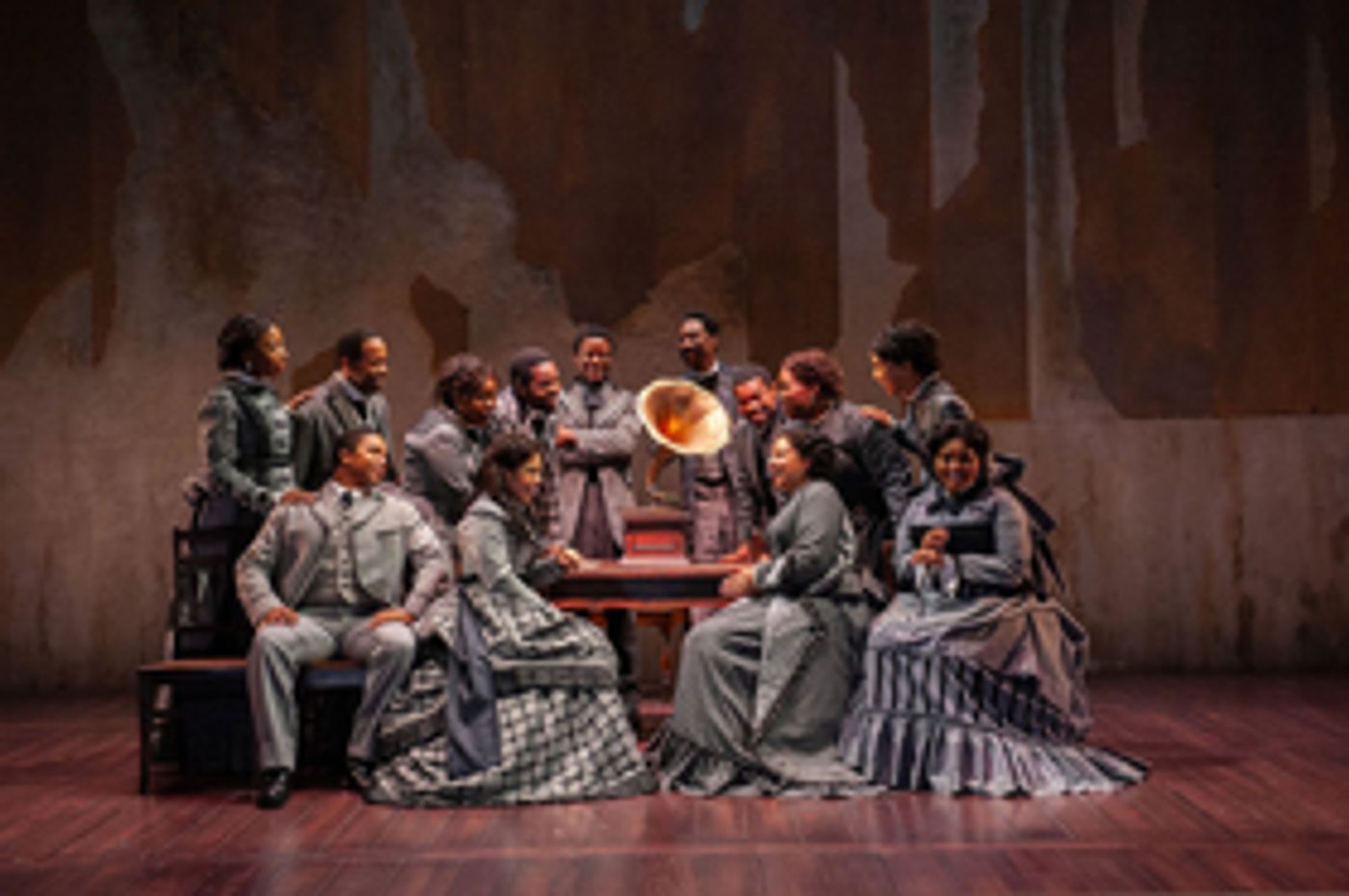Review: World Premiere JUBILEE at Arena Stage

There's a glorious sound coming from Arena Stage.
From out of the mists of time, in monochromatic colors as if from a tintype, comes the sublime harmonizing of 13 voices, giving an idea of the transporting power of the Fisk Jubilee Singers.
"Jubilee," the world-premiere musical written and directed by Tazewell Thompson, tells the remarkable story of the students who, just six years after the Civil War and the Emancipation Proclamation, formed an a cappella group intent on raising funds for its recently established black college, Fisk University in Nashville, and went on tour.
It's told in much the way the students must have presented their story in 1871 - through song, preserving and enriching the traditions of the Negro spiritual, which might have been lost had they not persevered and given them life. They sing a song en masse, without the need for amplification, on a stage that also reflects 19th century in furniture, footlights, a weathered backing wall, upon which projections are added as needed to set the scene.
We learn of their stories sporadically, between richly arranged (by Dianne Adams McDowell) songs many of which have become spiritual standards more than a century and a half later. Indeed, their individual stories aren't detailed until the second half. And a lot of their most dramatic stories - discrimination and persecution on the road, difficulty finding hotels, sparse audiences and derision from the press - are left behind.
Instead "Jubilee" stands as a startling historical recreation, with audiences standing in for how listeners in the 1870s must have reacted, applauding each song when the action didn't immediately go to the next scene (if we were allowed to applaud every number, the two and a half hour running time would be much longer).
Things happen for the troupe, though. We see how they're greeted in plantation parlor, as a kind of novelty, before they're off to a European tour, where Queen Victoria is enamored of the sound, but no less condescending (she obsesses on skin tone). The singers were an oddity because they were so opposite of what was presented as African-American entertainment of the era - the goofy excuses of the minstrel show, where the "black" performers were whites in blackface. Instead, these were dignified, impeccably dressed singers who carried themselves with the nobility suitable for the sentiment they sang.
The voices worked best in ensemble, though there were standouts among them soloing, among them Zonya Love from Broadway's "The Color Purple" and Lisa Arrindell of Broadway's "Cat on a Hot Tin Roof."
As with the ensemble they were portraying, there were behind the scenes concerns that weren't always reflected on stage.
In particular, after opening for previews April 26, Arena went to the unusual length of canceling six days of performances May 7-12 because of the illness of one cast member. There had been no understudies. Since then, four have been hired as understudies - one of whom, Brittani McNeill, stood in for Shaleh Adkisson on a rescheduled press night. (The production was also extended a week as a result).
"Jubilee" almost has a dreamlike look directly into the past, from the exceptional costume design of Merrily Murray-Walsh that were crisp and mesmerizing and so true to existing photographs of the ensemble, to the exacting wigs of Anne Nesmith.
The ensemble moved exceedingly well throughout, and since there is no choreographer credited, we can assume that is also the work of Thompson, for whom this is his 20th work for Arena. Robert Wierzel's lighting had a glow that seemed from the early days of electricity; there was also a stark, silhouetted segment that brought to mind the vivid work of the artist Kara Walker.
Shawn Duan's projections do a good job of setting the scenes in an artful way (though I was thrown by a marquee for the Apollo Theatre, which wouldn't open until 1934).
There is a bit of a length problem with "Jubilee," which may gain more power being more succinct. And some of the songs, and their recurring choruses and various reprises could be trimmed. When we learn the fate of each of the singers, and their longevity, there is empathy and maybe the idea we would have liked to learned more about them individually.
But the power of the music and the meshing of the ensemble only underscored how successful they had been in recreating the Fisk Jubilee Singers' original magic.
Running time: Two hours and 25 minutes, with one intermission.
Photo credit: Ensemble of "Jubilee" at Arena Stage. Photo by Margot Schulman.
"Jubilee" runs through June 9 at Arena Stage, 1101 Sixth St SW. Tickets at 202-488-3300 or online.
Reader Reviews
Videos

